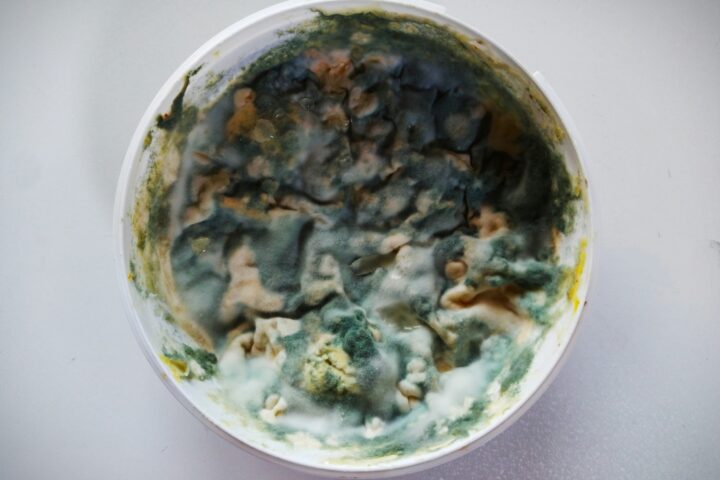
“Genetic engineering endangers health”
It is often said that genetically modified foods are not safe and could have a negative impact on human and animal health. However, these claims cannot be substantiated by facts. According to the current state of research, genetic plant breeding is as safe as conventional breeding methods. And genetic engineering increases food safety and contributes to improved digestibility.
Friday, March 19, 2021
In brief
- Plants that have been bred with genetic engineering support are at least as safe as conventionally bred plants.
- In the US, 95% of the more than nine billion cattle, pigs and poultry fed annually now eat feed made from genetically modified plants.
- Using new genetic engineering techniques, researchers can make plants more resistant to diseases or pests, as well as to heat, moisture or salinated soils.
Since the introduction of genetic engineering in agriculture, each plant grown with genetic engineering support has proved to be at least as safe and compatible for health and the environment as plants grown using other modern or classic methods.
As safe as conventional organisms
The safety of genetic engineering processes has been addressed by numerous public authorities and scientific organizations in Europe. The Swiss Academies of Sciencessummarize the results in a fact sheet as follows: "They (the studies) come to the unanimous conclusion that the new techniques considered so far are as safe as the breeding methods used up to now and additionally have an even more precise effect." In addition, all new varieties – irrespective of the breeding technique – must withstand a multi-year test before they are included in the catalog of varieties.
The German Federal Ministry of Food and Agriculture (BMEL) has also been working on the effects of genetically modified food on humans. It confirms what researchers have known for many years: that genetically modified foods, as well as non-genetically modified foods, are broken down into small fragments in the digestive tract and thus the risk of a health impairment for humans is considered very unlikely.
Modern genetic engineering offers the possibility of influencing plants in such a way that they have advantages for human nutrition, the environment and the climate. Consumers do not expose themselves to a new or different risk when they consume foods produced using genetic engineering. The term "without GMOs" can be misleading. In Switzerland, animal products can be labeled "without GMOs" (without genetically modified organisms) if the animals have been fed without genetically modified feed plants. However, the labeling raises questions: Feed often contains additives that have been produced using genetic engineering.
Blindspot article
No danger for farm animals - but a lot of benefits
For several years, there has also been a large study of farm animals: In the US, 95% of the more than nine billion cattle, pigs and poultry fed annually now eat feed made from genetically modified plants. Researchers from the University of California in Davis have used publicly available data from 1983 to 2011 to investigate whether there have been any noticeable trends in farm animal health during this period. Their conclusion: Starting in 2000, more than 100 billion livestock have eaten genetically engineered feed plants in the USA. All animals were examined by veterinarians prior to slaughter, as required by law. The milk yield of cows and the slaughter weight of pigs, cattle and poultry have steadily increased, while the number of sick animals has steadily decreased. Veterinary medicine, which, like human medicine, is also based to a large extent on modern biotechnology, has certainly contributed to this. Recognizing the benefits of these technologies also opens up new solutions: For example, the protein-rich press residues of rapeseed could be turned into a more digestible feed for livestock with the help of "genome editing", which would be more ecological in several respects.
Opportunity for greater yields and sustainability
Because the world's population will grow to almost 10 billion people by 2050, higher yields must be made on as little land as possible. Using new genetic engineering techniques, researchers can make plants more resistant to diseases or pests, as well as to heat, moisture or salinated soils. It is also possible to enrich plants with valuable nutrients or vitamins. Such characteristics are of enormous importance for global agriculture, as climate and weather change rapidly. Likewise, the biological stress for a plant is constantly changing: New competitive plants, insects or diseases are spreading. Genetic engineering can make a decisive contribution to ensuring food security. In 2016, more than 100 Nobel laureates were therefore in favor of genetic engineering in agriculture. At the same time, the environment and the climate can also be relieved by the reduced use of land.
Many advantages are already offered by corn which has been genetically modified to make it resistant to certain insects and is grown mainly in the USA, Brazil and Argentina. It provides more yield, fewer insecticides need to be used and it is contaminated with much fewer mold toxins, or mycotoxins. These usually occur in plants after insect infestation, because mold forms in the areas that have been bitten. Mycotoxins can be toxic or even cause allergies or cancer. This is a major problem, especially in developing countries: Experts believe that the consequences of poisoning with aflatoxins are more deadly than malaria and tuberculosis. About 40 percent of liver cancer deaths in Africa are related to the intake of aflatoxins.
Related articles

Global facts on world food and agriculture
Only thanks to technological progress and modern crop protection will we be able in the future to conserve our resources while feeding a growing population in a healthy and affordable way.

Pesticides in Green Smoothies
After countless recipes for Christmas cookies, festive roasts and cocktails, the advice on losing weight, detoxing and beautifying oneself now takes centre stage. Most of it is sheer nonsense.

Natural Toxins: An Underestimated Risk in Our Food
Safe food cannot be taken for granted. While chemical substances are often the focus of public criticism, reality shows that the greatest risks to food safety are of natural origin. Recent recalls of infant food products illustrate how insidious bacterial toxins or moulds can be.

Herbal Teas: Making You Sick Instead of Slim
Plant protection products are frequently the focus of public criticism. Far less attention is paid to the fact that natural ingredients in teas and dietary supplements are also biologically active and can pose health risks.

